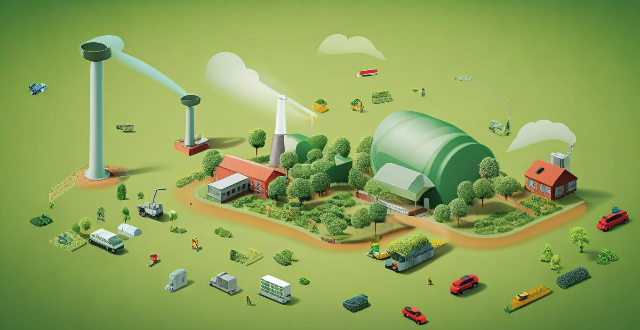Clean energy investment positively affects the environment in various ways, including reducing greenhouse gas emissions, conserving natural resources, improving air quality, promoting sustainable practices, and enhancing long-term energy security. These efforts help mitigate climate change, protect ecosystems, reduce pollutants, encourage innovation and job creation, and stabilize energy prices. As environmental challenges persist, prioritizing clean energy investment is crucial for the planet's health and future generations.

Impact of Clean Energy Investment on the Environment
Clean energy investment plays a significant role in reducing the negative impact of human activities on the environment. Here are some ways in which clean energy investment can positively affect the environment:
Reduction of Greenhouse Gas Emissions
- Decreased Carbon Footprint: Clean energy sources like wind, solar, and hydroelectric power produce little to no greenhouse gas emissions during operation. Investing in these technologies helps to reduce the carbon footprint of energy production.
- Mitigating Climate Change: By reducing greenhouse gas emissions, clean energy investment contributes to the mitigation of climate change, which is one of the most pressing environmental issues of our time.
Conservation of Natural Resources
- Reduced Water Consumption: Unlike traditional coal or nuclear power plants, many renewable energy sources require minimal water for operation. This conservation of water resources is crucial in areas facing water scarcity.
- Protection of Ecosystems: The installation of clean energy infrastructure often has a smaller physical footprint than conventional energy projects, leading to less disruption of natural habitats and ecosystems.
Improved Air Quality
- Reduction of Pollutants: Clean energy technologies do not emit pollutants such as sulfur dioxide, nitrogen oxides, and particulate matter that are associated with fossil fuel combustion.
- Health Benefits: Better air quality resulting from clean energy use leads to reduced incidences of respiratory illnesses and other health problems in humans and animals.
Promotion of Sustainable Practices
- Energy Efficiency: Investment in clean energy often comes with an emphasis on energy efficiency, encouraging the development of appliances and buildings that use less energy.
- Innovation and Job Creation: As the demand for clean energy grows, so does the incentive to innovate in this sector. This leads to job creation in new industries focused on sustainability.
Long-term Energy Security
- Diversification of Energy Sources: By investing in various forms of renewable energy, countries can decrease their reliance on single energy sources, enhancing energy security.
- Reduction of Fuel Price Volatility Risk: Since renewable energy sources often have low or no fuel costs, they provide a more stable price than fossil fuels, which are subject to global market fluctuations.
In conclusion, clean energy investment has numerous positive effects on the environment, ranging from direct reductions in pollution and resource consumption to broader benefits like fostering sustainable practices and improving long-term energy security. As we continue to face environmental challenges, prioritizing clean energy investment becomes increasingly vital for the health of our planet and future generations.